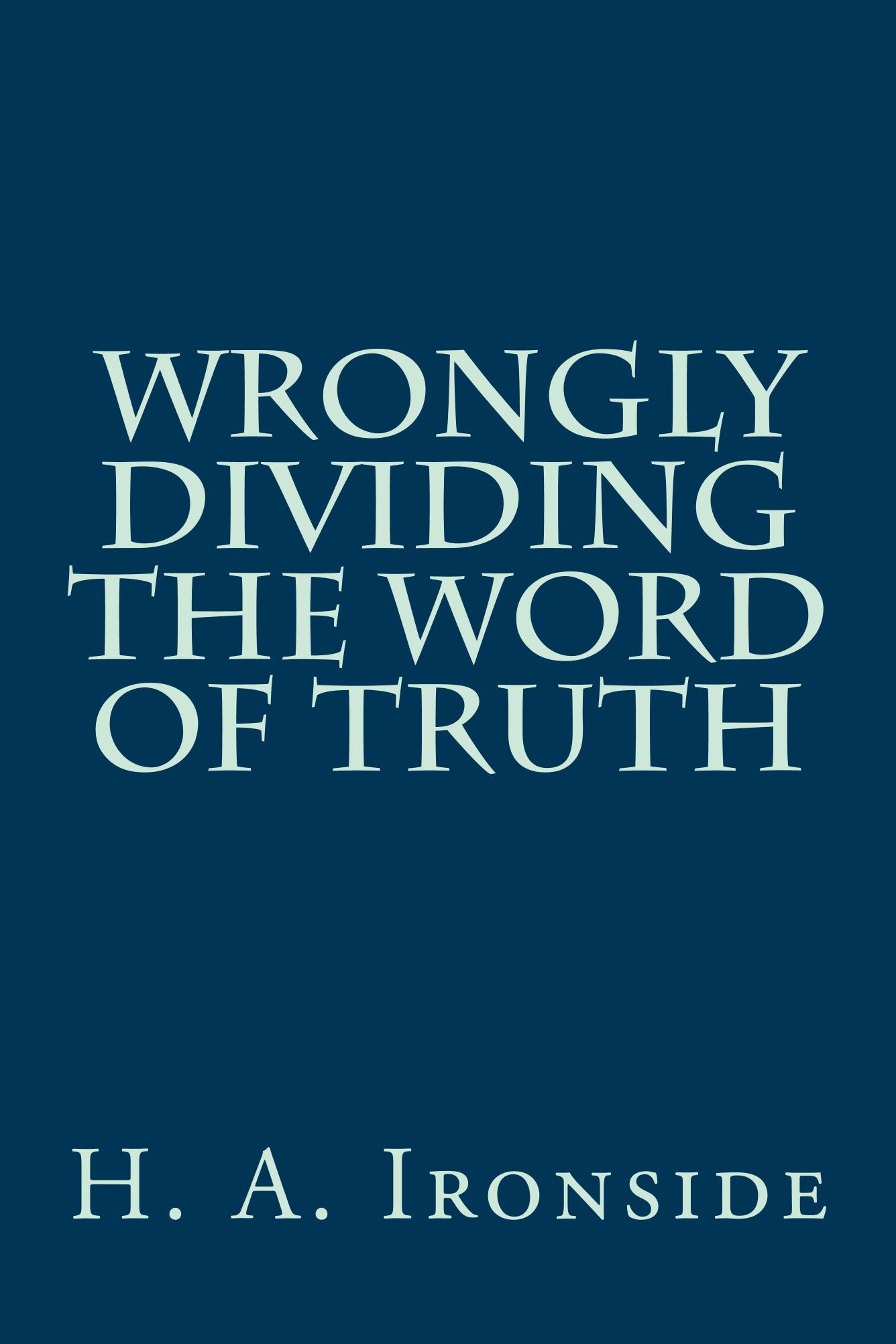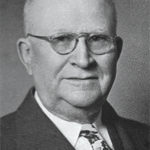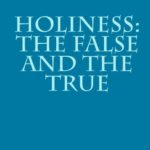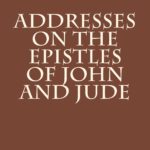Description
Wrongly Dividing The Word of Truth
by
H.A. Ironside
CHAPTER ONE What is Ultra-Dispensationalism?. 3
CHAPTER TWO The Four Gospels and Their Relation to the Church 11
CHAPTER THREE The Transitional Period. Is the Church of The Acts the Body of Christ? 25
CHAPTER FOUR When Was the Revelation of the Mystery of the One Body Given? 35
CHAPTER FIVE Further Examination of the Epistles. 49
CHAPTER SIX Is the Church the Bride of the Lamb?. 57
CHAPTER ONE What is Ultra-Dispensationalism?
“Study to show thyself approved unto God, a workman that needeth not to be ashamed, rightly dividing the Word of Truth” (2 Tim. 2: 15).
PAUL’S exhortation to the younger preacher, Timothy, has come home to many with great power in recent years. As a result, there has been a return to more ancient methods of Bible study, which had been largely neglected during the centuries of the Church’s drift from apostolic testimony. Augustine’s words have had a re-affirmation: “Distinguish the ages, and the Scriptures are plain.” And so there has been great emphasis put in many quarters, and rightly so, upon the study of what is commonly known as “dispensational” truth. This line of teaching, if kept within Scriptural bounds, cannot but prove a great blessing to the humble student of the Word of God who desires to know His will or plan in His dealings with men from creation to the coming glory. A careful examination of the volume of Revelation shows that God’s ways with men have differed in various ages. This must be taken into account if one would properly apprehend His truth.
The word “dispensation” is found several times in the pages of our English Bible and is a translation of the Greek word “oikonomia.” This word, strictly speaking, means “house order.” It might be translated “administration,” “order,” or “stewardship.” In each successive age, God gives to men of faith a certain stewardship, or makes known to them a certain order or administration, in accordance with which they are responsible to behave. A dispensation then is a period of time in which God is dealing with men in some way in which He has not dealt with them before. Only when a new revelation from God is given, does a dispensation change. Moreover, there may be degrees of revelation in one dispensation; all, however, having to do with a fuller unfolding of the will of God for that particular age. This was very definitely true in the dispensation of law, from Moses to Christ. We have the various revelations: of Sinai, both the first and second giving of the law; then added instructions during the wilderness years; the covenant with David; and the revelations given to the prophets. The circumstances in which God’s people were found changed frequently during this age of law, but the dispensation itself continued from Sinai until Jesus cried, “It is finished.” It is important to have this in mind, otherwise the vast scope of an ever unfolding dispensation may be lost sight of, and one might get the idea that every additional revelation of truth in a given age changed the dispensation, whereas it only enlarges it.
One may illustrate a dispensation in a very simple way, remembering that the word really means “house order,” and I might add, the Greek word has been Anglicized, and we know it as “economy.” Let us suppose a young woman whom we will call Mary, is going out into service. She obtains a position in a humble home belonging to a good family of the working class. There are certain rules governing that home which she must learn to observe. All perhaps is not plain to her at once, but as time goes on, she learns more and more fully the desires of her mistress. We will say she is to rise at five every morning and begin to prepare the breakfast and put up the lunches for those who go out to work. At six she is to ring the rising bell; at half-past six the family are supposed to be at the breakfast-table; and at seven they leave for work. Dinner of course is at a certain hour at night, and in the meantime she has her different duties to perform in keeping the house in order. She learns quite thoroughly the domestic economy of this particular home and becomes a well-qualified household servant. Now let us suppose that later on she finds that a cook and housekeeper is needed for the large mansion on the hill. She applies for the position and is accepted. Moving in, her mistress undertakes to instruct her in the economy of the new home, but Mary says, “You need not give me any instructions, Ma’am, I know exactly how a house should be run. just leave it to me and everything will be attended to properly. I have had some years of experience in housekeeping and I would not have asked for the position if I did not know what was required.” Her mistress is dubious, but, for the time being, acquiesces.
The next morning, the waking-gong sounds at six o’clock. The family, who are accustomed to banker’s hours during the day and are given to very late hours at night, are astonished and chagrined at being aroused so early. The mistress calls down to the housekeeper, “What does this mean?” and learns that breakfast will be on the table in half-an-hour.
“Why, Mary,” she exclaims; “we never breakfast here until half-past eight.”
“But the breakfast is hot and the lunches are all ready, Ma’am.”
“No one carries lunches in this home. You see, Mary, you do not understand the arrangement here. I shall have to instruct you carefully today.” And poor bewildered Mary learns the importance of dispensational truth!
The illustration, I know, is crude, but I think any one will see the point. God had one order for the house of Israel. There is another order for the house of God, the Church of the living God today. There will be a different order in the millennial age, and there have been varying orders in the past.
All this comes out clearly in the pages of Holy Scripture, and is certainly involved in the expression in our English Bibles, “rightly dividing the Word of Truth.” Of course, this expression is not by any means to be limited to dispensational teaching. It also implies putting each great doctrine of the Word in its right place. It has been translated, “cutting in a straight line the Word of Truth,” that is, not confounding or confusing things that differ. It even suggests the thought of honestly facing the Word of Truth.
It is right here then that we need to be careful, and not read into the Word of God ideas out of our own minds which are not really there. Through doing this, some have ignored dispensational truth altogether. Others have swung to an ultra-dispensationalism which is most pernicious in its effect upon one’s own soul and upon testimony for God generally. Of these ultra-dispensational systems, one in particular has come into prominence of late years, which, for want of a better name, is generally called “Bullingerism,” owing to the fact that it was first advocated some years ago by Dr. E. W. Bullinger, a clergyman of the Church of England. These views have been widely spread through the notes of “The Companion Bible,” a work partly edited by Dr. Bullinger, though he died before it was completed. This Bible has many valuable features and has been a help in certain respects to God’s servants who have used it conservatively, but it contains interpretations which are utterly subversive of the truth. Some of Dr. Bullinger’s positions are glaringly opposed to what is generally accepted as orthodox teaching, as, for instance, the sleep of the soul between death and resurrection; and it is a most significant fact that while he did not apparently fully commit himself to any eschatological position as to the final state of the impenitent, most of his followers in Great Britain have gone off into annihilation, and there is quite a sect in America who began with his teaching who now are restorationists of the broadest type, teaching what they are pleased to call universal reconciliation, which to their minds involves the final salvation not only of all men, but of Satan and all the fallen angels. These two views, diverse as they are, are nevertheless the legitimate offspring of the ultra-dispensational system to which we refer.
The present writer has been urged by many for years to take up these questions, but has always heretofore shrunk from doing so; first, because of the time and labor involved, which seemed out of all proportion to the possible value of such an examination; and secondly, because of a natural shrinking from controversy, remembering the word, “The servant of the Lord must not strive; but be gentle unto all men, apt to teach, patient; in meekness instructing those that oppose themselves; if God peradventure will give them repentance to the acknowledging of the truth.” But the rapid spread of these pernicious views and their evident detrimental effect upon so many who hold them, has led to the conclusion that it would be unfaithfulness to God and to His people if one refused to seek to give any help he could in regard to these teachings.
Briefly, then, what are the outstanding tenets of Bullingerism and its kindred systems? For one needs to remember that a number are teaching these ultra-dispensational things who declare that they are not familiar with the writings of Dr. Bullinger, and repudiate with indignation the name of “Bullingerism.” There are perhaps six outstanding positions taken by these teachers:
First, inasmuch as our Lord Jesus was “a minister of the circumcision to confirm the promises made to the fathers,” it is insisted that the four Gospels are entirely Jewish and have no real message for the Church, the Body of Christ. All might not put it quite as boldly as this, but certainly their disciples go to the limit in repudiating the authority of the Gospels.
Secondly, it is maintained that the book of Acts covers a transition period between the dispensation of the law and the dispensation of the mystery; that is, that in the book of Acts we do not have the Church, the Body of Christ, but that the word “ekklesia” (church, or assembly), as used in that book, refers to a different Church altogether to that of Paul’s prison epistles. This earlier Church is simply an aspect of the kingdom and is not the same as the Body of Christ!
Third, it is contended that Paul did not receive his special revelation of the mystery of the Body until his imprisonment in Rome, and that his prison epistles alone reveal this truth and are, strictly speaking, the only portion of the Holy Scriptures given to members of the Body. All of the other epistles of Paul, save those written during his imprisonment and the general epistles, are relegated to the earlier dispensation of the book of Acts, and have no permanent value for us, but were for the instruction of the so-called Jewish church of that time.
Fourth, the entire book of Revelation has to do with the coming age and has no reference to the Church today. Even the letters to the seven churches in Asia, which are distinctly said to be “the things which are,” are, according to this system, to be considered as “the things which are not,” and will not be until the Church, the Body of Christ, is removed from this world. Then, it is contended, these seven churches will appear on the earth as Jewish churches in the Great Tribulation.
Fifth, the Body of Christ is altogether a different company, according to these teachers, from the Bride of the Lamb, the latter being supposed to be Jewish.
Sixth, the Christian ordinances, having been given before Paul is supposed to have received his revelation of the mystery in prison, have no real connection with the present economy, and therefore, are relegated to the past, and may again have a place in the future Great Tribulation.*
*As to this, these ultra-dispensationalists differ. Most of them reject water baptism entirely for this age. All of them are not prepared to go so far in connection with the Lord’s Supper, but many of them repudiate it too.
Besides these six points, there are many other unscriptural things which are advocated by various disciples who began with these views and have been rapidly throwing overboard other Scriptural teachings. Many Bullingerites boldly advocate the sleep of the soul between death and resurrection, the annihilation of the wicked, or, as we have seen, universal salvation of all men and demons, the denial of the eternal Sonship of the Lord Jesus Christ, and, gravest of all, the personality of the Holy Spirit. All of these evil doctrines find congenial soil in Bullingerism. Once men take up with this system there is no telling how far they will go, and what their final position will be in regard to the great fundamental truths of Christianity. It is because of this that one needs to be on his guard, for it is as true of systems as it is of teachers, “By their fruits ye shall know them.”
Having had most intimate acquaintance with Bullingerism as taught by many for the last forty years, I have no hesitancy in saying that its fruits are evil. It has produced a tremendous crop of heresies throughout the length and breadth of this and other lands, it has divided Christians and wrecked churches and assemblies without number; it has lifted up its votaries in intellectual and spiritual pride to an appalling extent, so that they look with supreme contempt upon Christians who do not accept their peculiar views; and in most instances where it has been long tolerated, it has absolutely throttled Gospel effort at home and sown discord on missionary fields abroad. So true are these things of this system that I have no hesitancy in saying it is an absolutely Satanic perversion of the truth. Instead of rightly dividing the Word, I shall seek to show that these teachers wrongly divide the Word, and that their propaganda is anything but conducive to spirituality and enlightenment in divine things.




Reviews
There are no reviews yet.